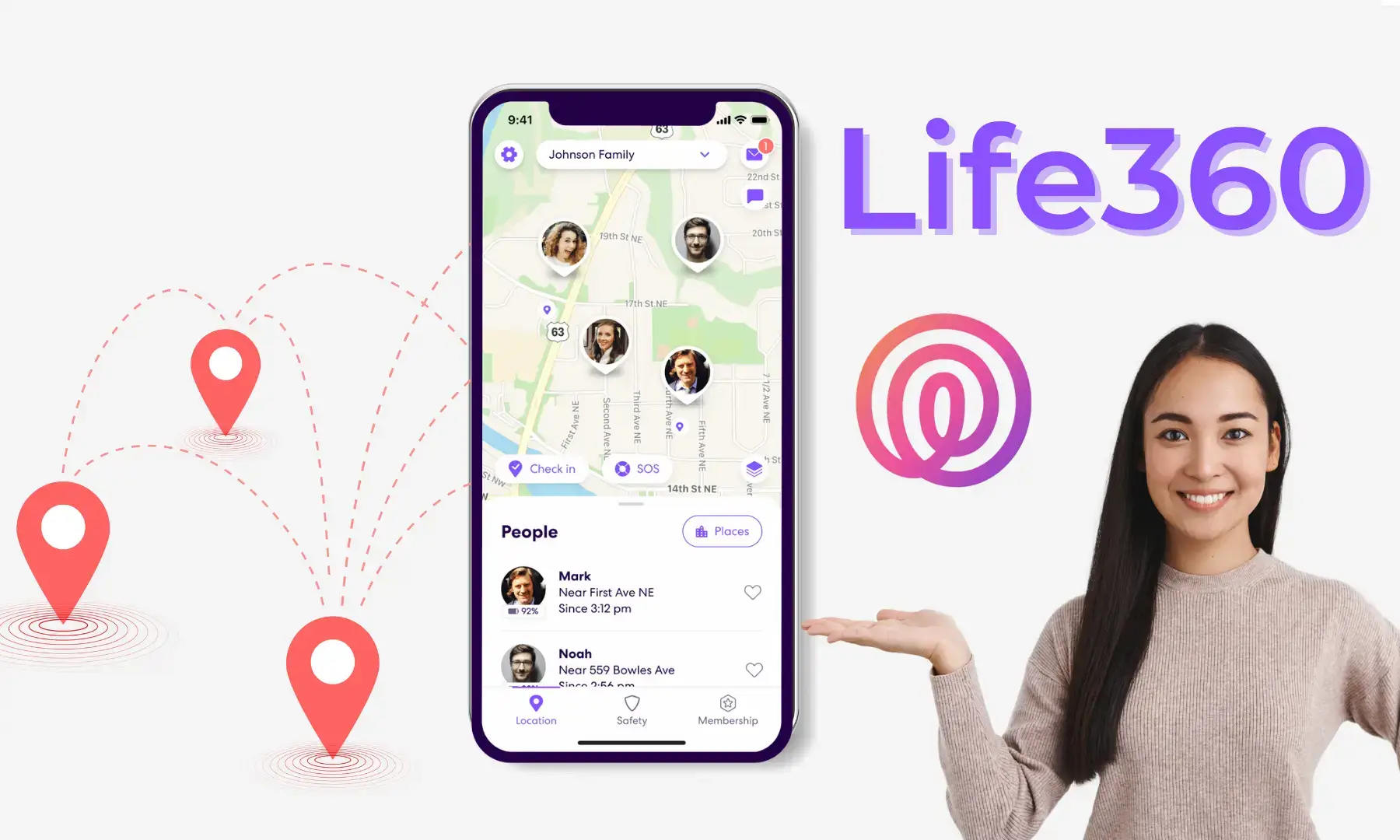ClevGuard Support: Monitor Devices with Others' Permission.
Life360 has gained popularity as a family tracking app, but its impact on privacy and family relationships has raised serious questions. While it promotes the idea of keeping families connected and safe, the constant surveillance it enables can have unintended consequences on trust, independence, and even mental health.

In this article, we'll explore why Life360 is bad for some families. We’ll cover privacy concerns, the effects of constant tracking on trust within families, the app’s technical issues, and alternatives that might be less intrusive. By the end, you'll have a clearer understanding of whether Life360 is safe for your family.
Why Life360 Is Bad for Your Families?
Part 1: Privacy Invasion Concerns
Part 2: Impact on Family Trust and Relationships
Part 3: Technical Limitations of Life360
Part 4: Alternatives to Life360
Part 5: Conclusion
Privacy Invasion Concerns
One of the biggest concerns with Life360 is how much it invades your privacy. With the app tracking your location 24/7, you might start to feel uncomfortable, especially if you're someone who values their independence.
Constant location tracking
The core feature of Life360 is real-time location tracking, which means the app knows where you are at all times. For many, this constant monitoring can feel intrusive and even stressful.

For instance, the app can detect when your phone screen is unlocked and may flag this as distracted driving. While the goal here is to promote safety, it highlights just how much personal information the app can access.
Data collection and security risks
Life360 doesn’t just track your current location; it collects and stores detailed information, including your location history, driving speed, and even important places like your home and work. This raises concerns about how this sensitive data is stored and protected.
In fact, a study from UTSA found security vulnerabilities in the app, warning that having access to one person’s device could make everyone in their family circle vulnerable.
Even more alarming is that Life360 has been reported to sell user data to third-party brokers, including information about families and children. Although the company claims the data is anonymized, privacy experts caution that anonymized data can often be re-identified, especially when combined with other information. This means your family’s whereabouts could potentially end up in the wrong hands.
Impact on Family Trust and Relationships
Beyond privacy concerns, Life360’s tracking can also have a profound effect on family dynamics, especially when it comes to trust.
Eroding trust between parents and children
By constantly monitoring their children’s whereabouts, parents may unintentionally send the message that they don’t trust their kids to make responsible choices. This can lead to resentment and secrecy, as children and teens may try to find ways to circumvent the app’s tracking features.

Rather than fostering open communication, Life360 can create tension and distrust, with some social workers even calling it a “layer of distrust and animosity” between parents and children.
Related Post: How to Bypass Life360 Without Parents’ Knowing
Overreliance on technology for communication
Life360 can also shift how families communicate. Instead of having direct conversations about plans and safety, parents may simply check the app for updates. This overreliance on technology can weaken family bonds, reducing meaningful interaction and limiting opportunities to build trust and independence.
Encouraging helicopter parenting
For parents with a tendency to micromanage their children’s lives, Life360 can make things worse. The app’s constant tracking can lead to overprotection, preventing kids from learning to navigate the world independently. This not only stifles their ability to develop problem-solving skills but can also increase stress and anxiety in children, who may feel suffocated by the constant surveillance.
Technical Limitations of Life360
On top of its impact on relationships, Life360 isn’t perfect from a technical standpoint.
Battery drain
Many users complain that Life360 significantly drains their phone battery. Because it constantly uses GPS, Wi-Fi, and cellular networks to track your location, the app can take a noticeable toll on your device's battery life. This is especially true during long drives, where Life360 relies heavily on GPS to monitor your driving.
Inaccurate location reporting
Location accuracy is another common issue with Life360. The app’s accuracy can fluctuate depending on GPS signal strength, network reliability, and even the environment you’re in (like being indoors or in a city with tall buildings). This can result in delayed or incorrect location updates, which is particularly concerning in situations where real-time information is critical.
Device compatibility issues
Life360’s features may also not work as expected on older devices. For example, its Drive Detection feature requires specific sensors that may not be available on older phone models, making the app less reliable for some family members.

Additionally, the app isn’t compatible with desktops, tablets, or smartwatches, which could be a limitation for families that use a variety of devices.
Alternatives to Life360
If you’re concerned about the impact of Life360 on your family, there are less invasive ways to keep your loved ones safe while maintaining trust and privacy.
Foster open communication
Rather than relying on constant tracking, focus on building a culture of open communication. Encourage your children to share their plans and whereabouts voluntarily. By fostering trust, your kids are more likely to reach out when they need help, rather than feeling like they’re being watched.
Set clear boundaries and expectations
Setting boundaries with your family can help ensure everyone feels safe without needing to be tracked 24/7. For example, you can set rules about when and where it’s appropriate for your children to go out, and establish a simple check-in system, like texting or calling when they reach their destination.
Use less invasive safety measures
If safety is your main concern, there are other options that don’t involve constant surveillance. Teach your children about personal safety, encourage them to travel with friends, or use parental control apps that focus more on device usage and less on location tracking.
Resort to Life360 alternatives
There are several alternatives to Life360 that offer family safety features without compromising privacy. Apps like Find My Friends, Glympse, and KidsGuard Pro provide location sharing, but with more control over who sees your information and when.
Conclusion
When you read here, you may probably figure out "is life360 safe" or "why life360 is bad". While Life360 may offer peace of mind, its downsides are significant. The constant tracking can erode trust within families, impact relationships, and raise serious privacy concerns. Combined with technical issues like battery drain and location inaccuracies, it’s important to carefully weigh whether Life360 is truly the best option for your family.
For many, the key to family safety isn’t constant surveillance but rather open communication, trust, and the right balance between independence and accountability. Before using Life360, consider alternative approaches that may be less invasive yet equally effective in keeping your family safe and connected.





